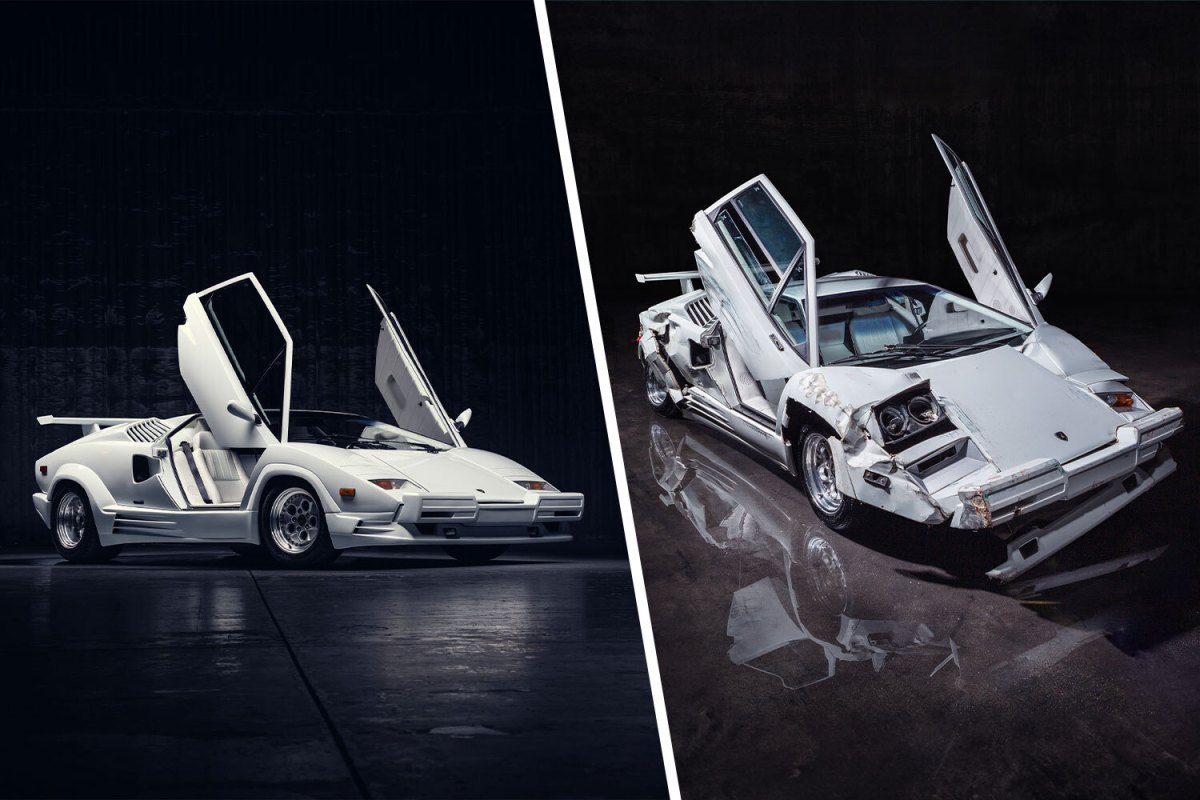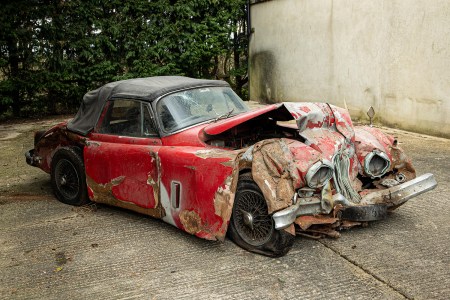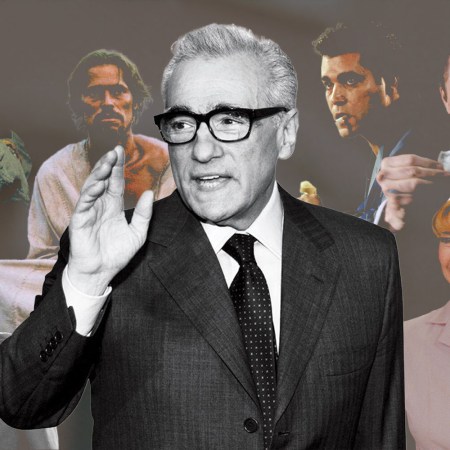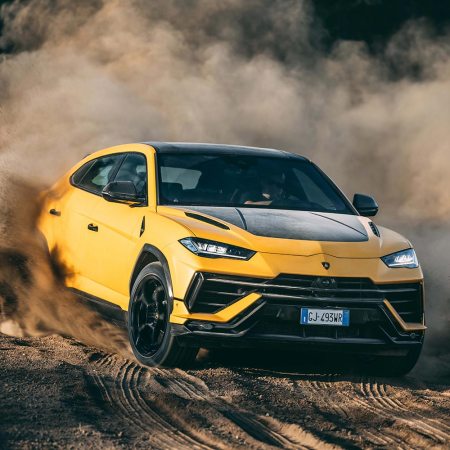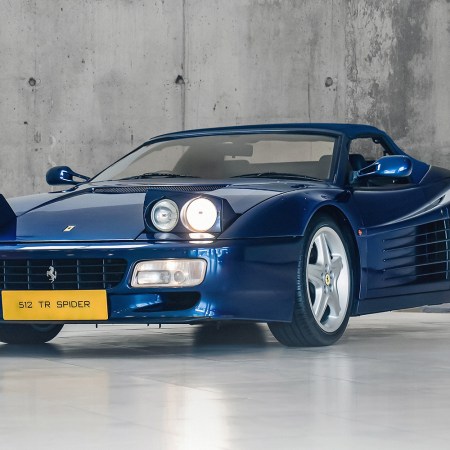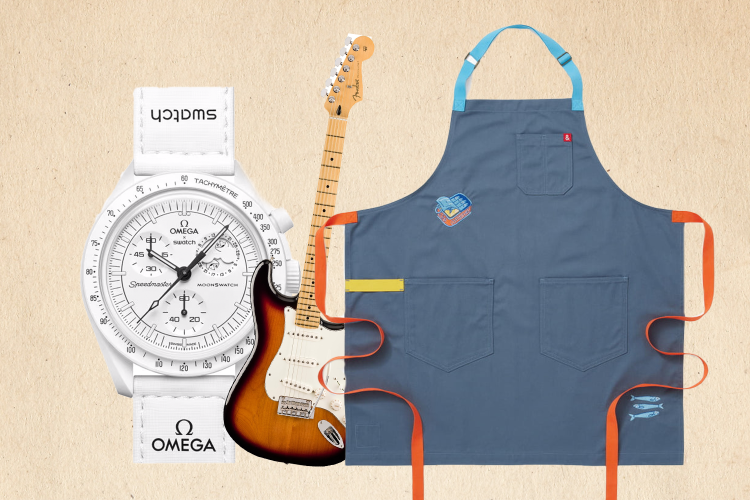What makes a collector car valuable? The scarcity of the model, the record of ownership, the authenticity of the parts, the current condition and whether or not it still drives are all obvious factors in assessing the price of a noteworthy vehicle. For auction companies, it’s not quite an exact science, but it’s close. When you add Hollywood into the mix, though, the formula can go haywire.
In recent months, two identical Lamborghinis that were used in The Wolf of Wall Street have been put up for auction. One, which is in pristine condition, has been valued by its seller at $1.5 to $2 million. The second, which was smashed, dented and wrecked during filming to the point that it’s no longer drivable, has been valued by a different auction house at the exact same price: $1.5 to $2 million. How could that be?
The car in question is a 1989 Lamborghini Countach 25th Anniversary Edition. Only some 650 models of this special-edition supercar were ever made, but despite its rarity, The Wolf of Wall Street director Martin Scorsese apparently wanted to use the real things for filming (this kind of exacting standard has helped propel the movie to be considered one of the greatest of his career). Using the authentic car makes sense, as it got a close-up during a memorable scene when Jordan Belfort (played by Leonardo DiCaprio) crawled into the white sports car and drove it while high on Quaaludes, crashing it into other cars, a golf cart and street signs.
According to Bonhams, which put the wrecked model up for auction in November at a sale in Abu Dhabi, the Lamborghini wasn’t only damaged during its time on camera. “Miraculously, the Hero Car emerged from these stunts with minimal damage,” the company wrote in the auction listing. “So, per the direction of Scorsese, the crew used an additional car and a flatbed truck to inflict additional damage to the Hero Car for a more wrecked appearance.”
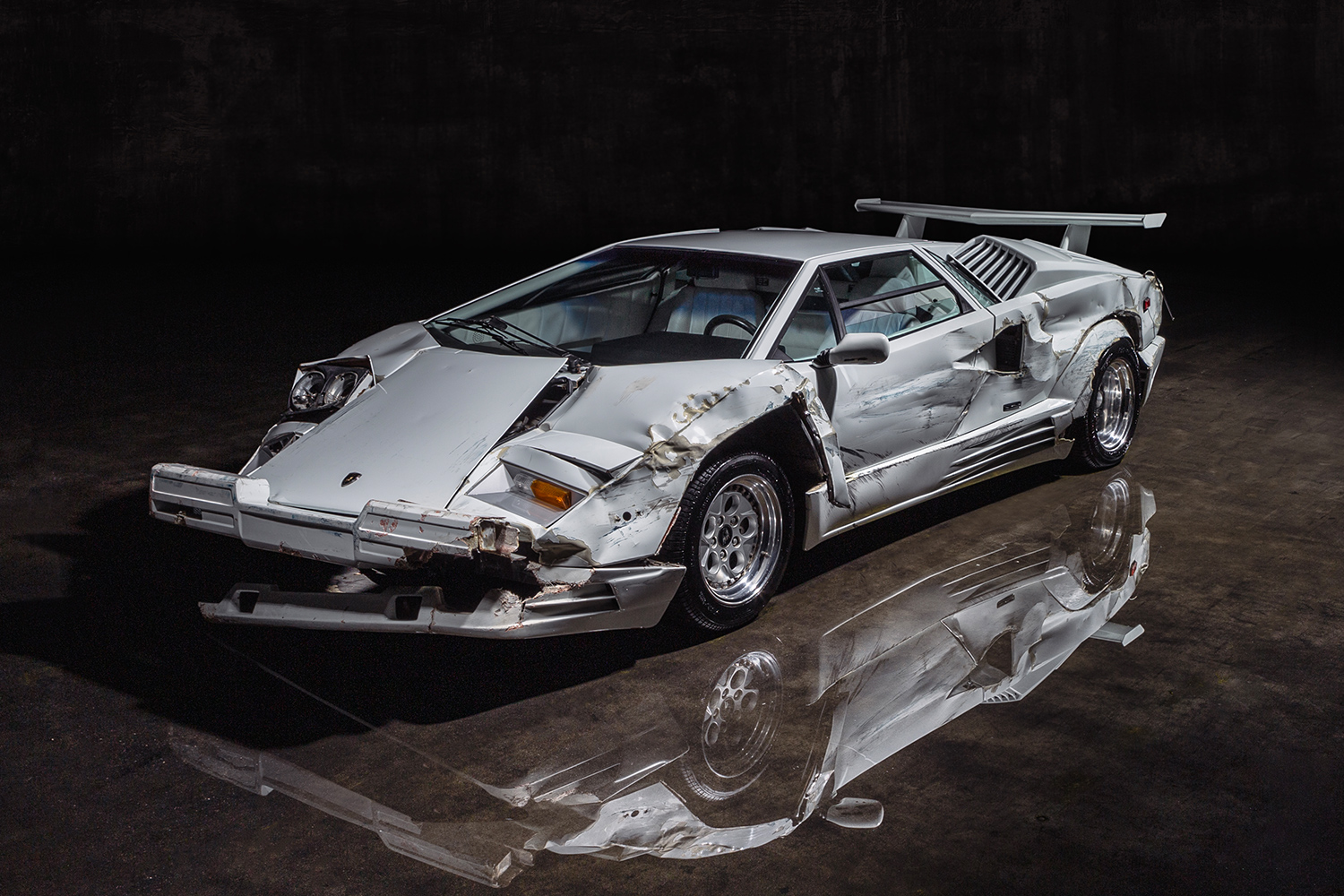
The reason Bonhams valued the scratch-and-dent Lamborghini for as much as $2 million — far above the $780,000 Hagerty estimates as the going rate for one of these cars in concours condition — has to do with the term “Hero Car.” Typically, movie productions have variations of the same vehicle for different purposes, be it stunts or shots that require doors or roofs to be removed. But the most valuable one is the hero car, the main car used in filming and the one that gets the most screen time. Bonhams says its model can be seen in the final movie for a total of three minutes and 11 seconds.
“Screen time — that’s big,” says Leslie Kendall, chief historian at the Petersen Automotive Museum in Los Angeles, speaking on the value of different cars used in a movie. “It’s pretty unusual to find a stand-in or a replica that strikes the buying public the way that an authentic piece does.”
Why an Ancient, Rusted, Tree-Indented Jaguar Just Sold for $127,552
This 1960 XK150 is the surest sign of the “rude health” of the collector car marketKendall points to the three DeLorean cars that were used in the original Back to the Future. The main car, which featured the “flux capacitor” and all the other time-traveling gadgetry, is the one people are most interested in. Even if The Wolf of Wall Street hero car has been relegated to prop status — a stationary showpiece rather than a drivable collector car — it’s theoretically going to be more valuable than one whose screen time was negligible.
“The person who’s buying the wrecked car can say, ‘This car was used throughout the movie before it got wrecked, and the reason it was a genuine Lamborghini is because the director wanted it that way,’” Kendall says. “That’s good stuff, as opposed to, ‘Oh yeah, the car in my garage, it was on screen for 16 seconds. Don’t you wish you were me?’”
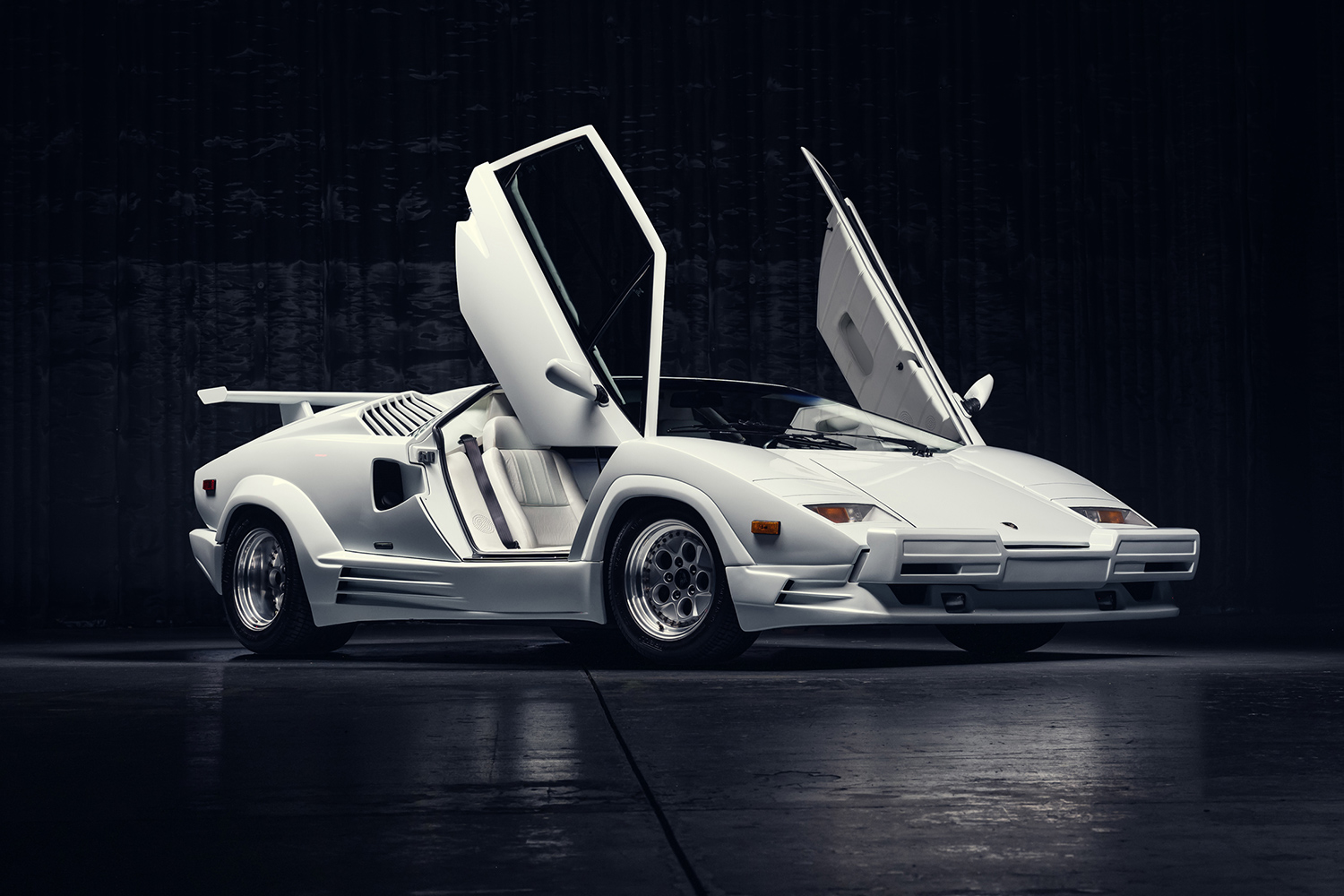
The latter situation appears to be the case for the Lamborghini set to be auctioned off on Friday at an RM Sotheby’s sale in New York. While the company notes that their model was used in some close-up shots and driving sequences in the film, rival auction house Bonhams attempted to make the case for its crashed variant by saying this intact model “only appears on screen for approximately 16 seconds in two brief shots.”
However, it appears collectors aren’t agreed on the price Bonhams put on the damaged Wolf of Wall Street hero car. According to reports after the November auction, the highest bid achieved was $1.35 million — below the $1.5 million low-end estimate — and the current owner refused to accept it. Bonhams will reportedly put it up for auction again soon, but the company didn’t respond to a request for comment to verify that claim.
If the intact, 16-second Lamborghini meets its $1.5 million threshold at auction today, then buyers will have essentially made the argument that a drivable vehicle is more valuable than a stationary one, no matter the screen time.
As Kendall admits, “There’s no formula you can ascribe to [the valuation of movie cars]. Otherwise auction companies would keep estimating things perfectly, and they don’t.”
This article was featured in the InsideHook newsletter. Sign up now.
